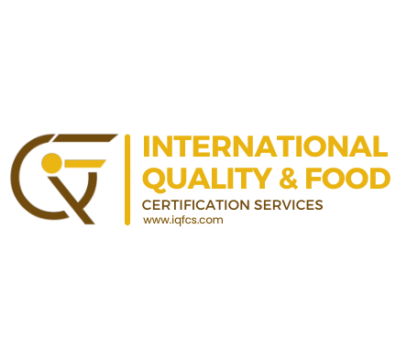Halal Certification
Halal Certification is the process by which food products, beverages, cosmetics, pharmaceuticals, and other goods are certified as compliant with Islamic dietary laws as outlined in the Quran and Hadith. The term halal means “permissible” or “lawful” in Arabic, and products that are certified as halal are deemed to meet the necessary requirements for Muslim consumption.
For products to be considered halal, they must not contain any ingredients or undergo any processes that violate Islamic laws. Halal certification ensures that a product complies with the dietary, health, and hygiene standards defined by Islamic principles, and it is an essential requirement for businesses targeting Muslim consumers worldwide.
More about HALAL Certification:
Halal certification is a formal process conducted by authorized certification bodies or organizations to verify that a product meets the guidelines set out by Sharia law. These guidelines govern not just the ingredients used but also the entire production process, including slaughter, handling, and packaging. Products that pass the certification process can display the halal symbol (often referred to as a halal logo), which serves as a mark of approval for Muslim consumers.
Halal certification can be applied to a wide range of products. Here are the main categories of halal certification:
- Halal Food:
- Meat and Poultry: Must come from animals that have been slaughtered according to Islamic rites, which include the recitation of the Bismillah (in the name of God) and Takbir (God is Great) before slaughtering the animal. The animal must also be free from harmful substances such as pork and alcohol.
- Processed Foods: All processed foods must be free from non-halal ingredients like pork derivatives, gelatin made from non-halal sources, alcohol-based flavorings, and other haram additives.
- Halal Beverages:
- Beverages, including water, juices, soft drinks, and alcoholic substitutes, must not contain any alcohol or non-halal ingredients. Alcoholic beverages, regardless of type, are prohibited in Islam.
- Halal Cosmetics and Personal Care:
- Halal certification is also applicable to cosmetics and personal care products. These products must be free from haram ingredients, such as alcohol, pork derivatives, and animal testing that does not comply with Islamic ethical standards.
- Halal Pharmaceuticals and Health Supplements:
- Medicines and health supplements must be free from haram substances, such as alcohol and non-halal gelatin. They must also ensure that all ingredients are sourced from halal-certified suppliers and adhere to Islamic ethics regarding production.
- Halal Non-Food Products:
- In addition to food and beverages, various non-food items, including cleaning products, must adhere to halal standards in terms of ingredients and production methods to ensure they are safe and permissible for Muslim use.
How to Get USFDA Certification?
- Initial Application:
- The applicant (manufacturer, supplier, or business owner) submits an application to a recognized halal certification body. The application generally includes business details, product information, ingredients, and the production process.
- Evaluation and Ingredient Review:
- The certifying body reviews the ingredients used in the product to ensure they are halal. This includes checking the origin of ingredients (whether they are derived from halal sources), the type of slaughter (for meat), and ensuring there are no prohibited (haram) substances.
- Inspection and Audit:
- The certifying authority may conduct an on-site inspection of the production facility to ensure that halal procedures are followed. This includes verifying the separation of halal and non-halal products, proper handling, and hygienic practices in line with Islamic guidelines.
- Approval and Certification:
- If the product complies with halal requirements, the certifying body issues a halal certificate. This certificate allows the business to display the halal logo on product packaging, indicating that the product meets halal standards.
- Ongoing Compliance and Audits:
- Once certified, the product and manufacturing facility are subject to regular inspections and audits by the halal certifying authority to ensure continued compliance. This helps maintain the integrity of the halal certification.
Benefits of USFDA Certification :
- Religious Assurance: Halal certification assures Muslim consumers that the product complies with Islamic dietary laws, making it permissible for consumption without concerns about religious restrictions.
- Market Access and Growth: Obtaining halal certification allows businesses to tap into the global halal market, which is growing rapidly and includes not just Muslims but also non-Muslim consumers who prefer halal food due to perceived quality, safety, and hygiene.
- Higher Standards of Hygiene and Quality: Halal-certified products often follow stringent hygiene and quality control measures, ensuring that food and non-food products meet high standards of safety and cleanliness.
- Ethical Production: Halal certification requires businesses to comply with ethical production practices, such as ensuring humane slaughter methods for animals, transparency in ingredient sourcing, and avoiding exploitation in manufacturing.
- Increased Consumer Trust: Displaying the halal certification logo on products can increase consumer confidence, leading to better sales and stronger customer loyalty.
- Global Recognition: Halal certification is recognized worldwide, especially in regions with large Muslim populations, and provides businesses with the opportunity to expand globally.
Are You Looking For
HALAL Certification
Halal Certification is the process by which food products, beverages, cosmetics, pharmaceuticals, and other goods are certified as compliant with Islamic dietary laws as outlined in the Quran and Hadith.
The term halal means “permissible” or “lawful” in Arabic, and products that are certified as halal are deemed to meet the necessary requirements for Muslim consumption.







